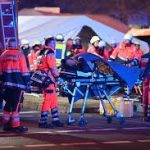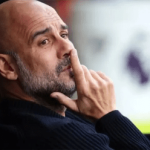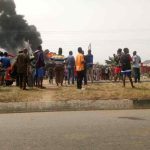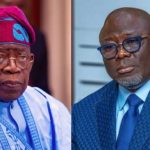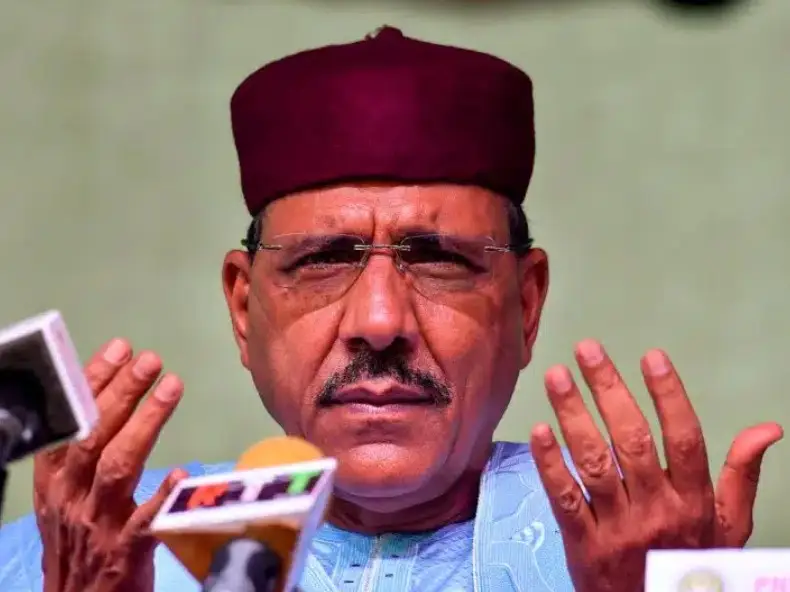Fears for Niger’s detained president mounted on Friday, a day after West African leaders declared they would muster a “standby” force in their efforts to return him to power.
The European Union and African Union joined the United States and other voices in sounding the alarm for democratically elected President Mohamed Bazoum, who was ousted by members of his guard on July 26.
“Bazoum and his family, according to the latest information, have been deprived of food, electricity and medical care for several days,” said EU foreign policy chief Josep Borrell, calling for the leader’s immediate restoration to office.
The AU echoed the concern, saying “such treatment of a democratically elected president” was “unacceptable.”
A source close to Bazoum said “he’s OK, but the conditions are very difficult,” adding that the coup leaders had brandished the threat of assaulting him in the event of military intervention.
Human Rights Watch (HRW) said it had spoken to Bazoum, his doctor, his family lawyer, a former communications advisor and a family friend on Wednesday and Thursday.
Bazoum, 63, described the treatment of him, his wife and their 20-year-old son as “inhuman and cruel,” HRW said.
“I haven’t had electricity since August 2 and no human contact since August 4. I’m not allowed to receive my family members (or) my friends who have been bringing food and other supplies to us,” the group quoted him as saying.
Without power, the family has been forced to eat only dry food, and nothing fresh, Bazoum reportedly said.
“My son is sick, has a serious heart condition, and needs to see a doctor,” he was quoted as saying. “They’ve refused to let him get medical treatment.”
-Intervention warning –
Ivory Coast President Alassane Ouattara on Thursday said the Nigerien military “are holding President Bazoum hostage. I personally think that it’s a terrorist act.”
Ouattara was speaking on the sidelines of an emergency summit in the Nigerian capital Abuja of the Economic Community of West African States (ECOWAS).
Under pressure to stem a cascade of coups among its members, the bloc approved the deployment of what it called a “standby force to restore constitutional order” in Niger.
The leaders did not provide any details on the force or any timetable for action, and also emphasised that they still wanted a peaceful solution.
Before the closed-door talks, Nigerian President Bola Tinubu — a hardliner in the crisis — stressed “we prioritise diplomatic negotiations and dialogue as the bedrock of our approach”.
ECOWAS had previously issued a seven-day ultimatum to the coup leaders to return Bazoum to power.
But the regime defied the deadline, which expired on Sunday without any action being taken.
-Troubled region –
ECOWAS comprises 15 nations, with Nigeria — West Africa’s most populous nation and economic powerhouse — the most powerful voice.
Since 1990, the bloc has intervened among six of its members at times of civil war, insurrection or political turmoil.
But the possibility of intervention in deeply fragile Niger has sparked debate within its ranks and warnings from neighbouring Algeria as well as Russia.
ECOWAS members Mali and Burkina Faso, both ruled by military governments that seized power in coups, have warned an intervention would be a “declaration of war” on their countries.
Those two countries, along with Guinea, were not represented at the Abuja summit, nor were Niger’s coup leaders.
Countries in the western Sahel — an arid region on the fringes of the Sahel — are among the poorest and most turbulent nations in the world.
The latest coup is Niger’s fifth since the landlocked country gained independence from France.
Like Mali and Burkina Faso, the country is struggling with a brutal jihadist insurgency that has claimed thousands of lives, forced many people from their homes and undermined faith in government.
Niger has the misfortune of facing a double jihadist insurgency, both in its southwest and also from militants crossing into the southeast,.
(NAN)

